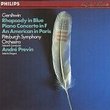| All Artists: Biber, Lamon, Tafelmusik Title: Harmonia Artificioso-Ariosa Members Wishing: 0 Total Copies: 0 Label: Sony Mod - Afw Line Release Date: 2/7/1995 Genre: Classical Styles: Historical Periods, Baroque (c.1600-1750) Number of Discs: 1 SwapaCD Credits: 1 UPC: 074645892023 |
Search - Biber, Lamon, Tafelmusik :: Harmonia Artificioso-Ariosa
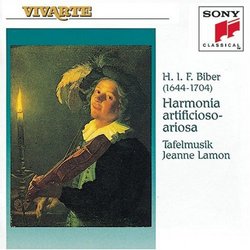 | Biber, Lamon, Tafelmusik Harmonia Artificioso-Ariosa Genre: Classical
Biber was one of the most talented and fascinating composers of the 17th century. He spent his life working between Czechoslovakia and Austria, attaining a considerable amount of fame and even earning a patent of nobility ... more » |
Larger Image |
CD DetailsSynopsis
Amazon.com Biber was one of the most talented and fascinating composers of the 17th century. He spent his life working between Czechoslovakia and Austria, attaining a considerable amount of fame and even earning a patent of nobility (he was permitted later in life to refer to himself as "von" Biber). His instrumental music is the most fanciful and entertaining of the period, partly due to his use of scordatura, or mistuning. This technique requires a different violin-string tuning for each of the seven partitas in this collection, which gives each a particular instrumental color. A partita, by the way, is the same thing as a suite--a selection of dances collected together to make a contrasting set. Everything by Biber is worth hearing, and this fine disc is no exception. -- David Hurwitz Similar CDs
Similarly Requested CDs
|
CD ReviewsWarm, Relaxed Biber M. De Sapio | Alexandria, VA | 12/14/2007 (5 out of 5 stars) "With HARMONIA ARTIFICIOSO-ARIOSA Heinrich Biber produced a valedictory of his art. The work consists of seven "partias" (suites) for various trio-sonata formations (mostly two violins and continuo), all but one of them using scordatura (unconventional tuning - perhaps this is one meaning of the word "artificioso" in Biber's fanciful Latin title). The persistent double stopping yields a texture so rich and opulent that at times you could swear a whole consort of strings is playing. All the hallmarks of Biber's style are here in abundance: melodic fertility, contrapuntal genius, and rhythmic playfulness, as well as a distinctly Biberesque earthy humor. It is a true musical feast.
The ensemble Tafelmusik plays with intimacy and understatement, creating an ambience of relaxed chamber music-making which brings to mind Dutch baroque domestic genre paintings. One could hardly imagine a more elegant, unforced rendition, nor a more warmly captured set of baroque instruments. Track 16 (the concluding Ciacona of the A major Partia) is a standout: the soloists seem to be in some sort of inspired trance. Perhaps something could have been done acoustically to enhance the antiphonal effect between the two treble instruments; but I am not an acoustical expert, and I doubt that other recordings of this Biber opus have any edge in this respect. [Unfathomably, this wonderful recording seems no longer to be in print. Get a used copy while they're still left!] " |

 Track Listings (38) - Disc #1
Track Listings (38) - Disc #1

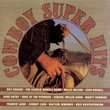

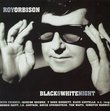

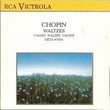
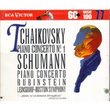

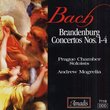

![Gershwin: Porgy & Bess [With Members of the Original Cast]](https://nationalbookswap.com/cd//m/71/7871/117871.jpg)
